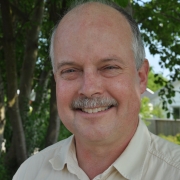 https://ish-world.com/wp-content/uploads/2024/09/Establishment-of-World-Adherence-Day-scaled.jpg
1707
2560
Helen Horsfield
http://ish-world.com/wp-content/uploads/2021/01/ISH-Logo-full-name-1000x354.jpg
Helen Horsfield2024-09-26 16:49:082024-09-26 16:49:08ISH announces establishment of World Adherence Day
https://ish-world.com/wp-content/uploads/2024/09/Establishment-of-World-Adherence-Day-scaled.jpg
1707
2560
Helen Horsfield
http://ish-world.com/wp-content/uploads/2021/01/ISH-Logo-full-name-1000x354.jpg
Helen Horsfield2024-09-26 16:49:082024-09-26 16:49:08ISH announces establishment of World Adherence DayThe ISH is positively committed to opposing discrimination against people on the grounds of gender, race, colour, nationality, religion, marital status, sexual orientation, class, age, disability, having dependants, HIV status or perceived lifestyle.
Our latest tweets
Follow us @ISHBP to keep up to date with the latest offers and news
HEARTS in the Americas is a large regional adaptation of the @WHO Global HEARTS initiative that is supported by @pahowho.
What can be learned from the initiative?
A lot!
Read article by @deanp_BP in the latest edition of #Hypertension News:
📝https://ish-world.com/wp-content/uploads/2024/07/ISH-Hypertension-News-July-2024_Learning-from-HEARTS-in-the-Americas.pdf
We invite you to join us for our October webinar! Register here: https://tinyurl.com/mr4x6u6x
If you attended @ish_2024 @ISHBP in Cartagena, don't miss this funding opportunity! Check this video and link for more information ⬇️⬇️ Deadline is approaching soon!!
@Dr_NChapman
🎥New video: The ISH Capacity Building Network is pleased to announce the 2024 ISH Collaboration Exchange Scholarship valued at $5,000 USD.
Watch @mari_br_montrea ask @Dr_NChapman how the Scholarship works:
https://www.youtube.com/watch?v=5V5DLSedAX4
 https://ish-world.com/wp-content/uploads/2024/09/Establishment-of-World-Adherence-Day-scaled.jpg
1707
2560
Helen Horsfield
http://ish-world.com/wp-content/uploads/2021/01/ISH-Logo-full-name-1000x354.jpg
Helen Horsfield2024-09-26 16:49:082024-09-26 16:49:08ISH announces establishment of World Adherence Day
https://ish-world.com/wp-content/uploads/2024/09/Establishment-of-World-Adherence-Day-scaled.jpg
1707
2560
Helen Horsfield
http://ish-world.com/wp-content/uploads/2021/01/ISH-Logo-full-name-1000x354.jpg
Helen Horsfield2024-09-26 16:49:082024-09-26 16:49:08ISH announces establishment of World Adherence Day






Our Corporate Members
Companies wishing to become Corporate Members of the ISH should contact the Secretariat for further details >> secretariat@ish-world.com
© 2023 International Society of Hypertension. All rights reserved. | Terms & Conditions | Privacy | Home | created by eb-webdesign.com









